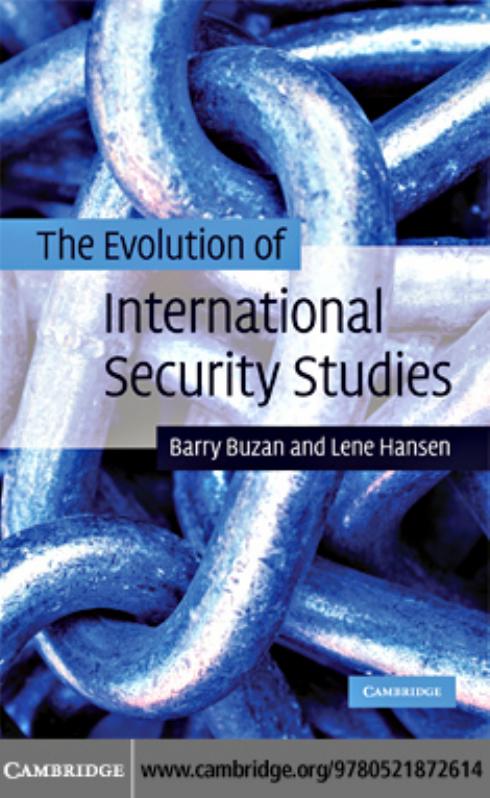The Evolution of International Security Studies 1st Edition by Barry Buzan, Lene Hansen ISBN 0511850670 9780511850677
$70.00 Original price was: $70.00.$35.00Current price is: $35.00.
Instant download EVOLUTION OF INTERNATIONAL SECURITY STUDIES THE after payment
The Evolution of International Security Studies 1st Edition by Barry Buzan, Lene Hansen – Ebook PDF Instant Download/Delivery: 0511850670, 9780511850677
Full dowload The Evolution of International Security Studies 1st Edition after payment

Product details:
ISBN 10: 0511850670
ISBN 13: 9780511850677
Author: Barry Buzan, Lene Hansen
International Security Studies (ISS) has changed and diversified in many ways since 1945. This book provides the first intellectual history of the development of the subject in that period. It explains how ISS evolved from an initial concern with the strategic consequences of superpower rivalry and nuclear weapons, to its current diversity in which environmental, economic, human and other securities sit alongside military security, and in which approaches ranging from traditional Realist analysis to Feminism and Post-colonialism are in play. It sets out the driving forces that shaped debates in ISS, shows what makes ISS a single conversation across its diversity, and gives an authoritative account of debates on all the main topics within ISS. This is an unparalleled survey of the literature and institutions of ISS that will be an invaluable guide for all students and scholars of ISS, whether traditionalist, ‘new agenda’ or critical.
The Evolution of International Security Studies 1st Table of contents:
1 Defining International Security Studies
Four questions that structure ISS
Security and its adjacent concepts
The disciplinary boundary of ISS
The Western-centrism conundrum
2 The key questions in International Security Studies: the state, politics and epistemology
From medieval to sovereign states
The French Revolution and domestic cohesion
The conception of politics in ISS
Epistemology and security debates
Mapping concepts of security
3 The driving forces behind the evolution of International Security Studies
A post-Kuhnian sociology of science
Internal versus external factors
The theoretical status of the driving forces framework
The five driving forces as general analytical categories
Great power politics
The technological imperative
Events
The internal dynamics of academic debates
Institutionalisation
4 Strategic Studies, deterrence and the Cold War
Great power politics: the Cold War and bipolarity
The technological imperative: the nuclear revolution in military affairs
The pressure of current affairs and ‘events’
The internal dynamics of academic debates
Institutionalisation
Conclusions
5 The Cold War challenge to national security
Peace Research and Arms Control
Great power politics: the Cold War and bipolarity
The technological imperative: the nuclear revolution in military affairs
Positive peace, integration and societal cohesion
Structural violence, economics and the environment
The internal dynamics of debates in Peace Research
From peace to security: Common Security, Feminism and Poststructuralism
Foregrounding ‘security’
Women as a particular group: the birth of Feminist Security Studies
Linguistic approaches and Poststructuralism
Institutionalisation
Conclusions
6 International Security Studies post-Cold War: the traditionalists
The loss of a meta-event: surviving the Soviet Union
Internal academic debates: state-centrism and epistemology
Great power politics: a replacement for the Soviet Union?
The technological imperative
Regional security and non-Western events
Institutionalisation
Conclusions
7 Widening and deepening security
Constructivisms: norms, identities and narratives
Conventional Constructivism
Critical Constructivism
Beyond the (Western) state
Post-colonialism
Human Security
Critical Security Studies
Feminism
Discursive security: the Copenhagen School and Poststructuralism
The Copenhagen School and its critics
Poststructuralism
Institutionalisation
Conclusions
8 Responding to 9/11: a return to national security?
Traditionalist ISS post-9/11
The traditionalist response to the Global War on Terrorism
Continuities in traditionalist ISS after 2001
Widening perspectives and the Global War on Terrorism
Discourses and terrorist subjects
Information technology, bio-security and risk
Institutionalisation and the Global War on Terrorism
Conclusions
9 Conclusions
The changing shape of ISS
Driving forces reconsidered
The state and future of ISS: conversation or camps?
The outlook for ISS
Great power politics
People also search for The Evolution of International Security Studies 1st:
the evolution of international security studies
barry buzan the evolution of international security studies
the evolution of international security studies. cambridge university press
what is international security studies
history of international security


